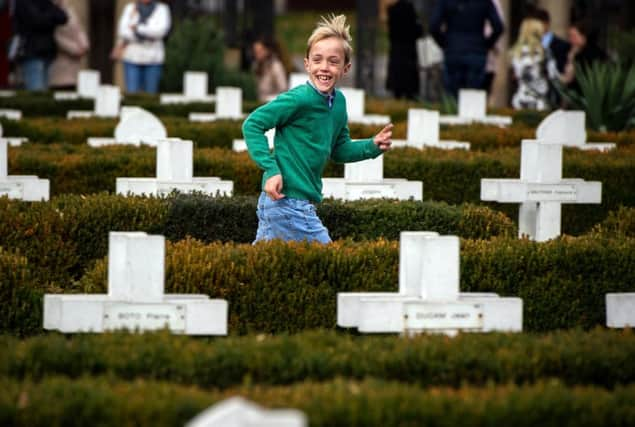Young people '˜fail to understand importance of First World War'


Older people are more likely to take this view, although even the majority of 18 to 24-year-olds do not think that youngsters grasp the significance of the conflict.
This lack of knowledge may be down to the passing of time, which makes it increasingly difficult for youngsters to make a connection with the seismic event, especially since the last veterans of the conflict have passed on, leaving no-one left to share their memories, according to an expert at University College London’s Institute of Education (IoE).
Advertisement
Hide AdAdvertisement
Hide AdA new poll conducted by the IoE, in partnership with school tour operator Equity, found that two-thirds of adults (66 per cent) do not agree that young people today understand the historical importance of the First World War.
More than half (58 per cent) of those aged 18-24 said this, along with 75 per cent of those aged over 65.
Just under half of all those polled (47 per cent) did not think that adults today understand the importance of the Great War.
Simon Bendry, programme director of IoE’s First World War Centenary Battlefields Tour programme, said: “Adults are right to fear that, generation by generation, our country is becoming increasingly out of touch with what was undoubtedly one of the most pivotal historical events to shape our country, and the world at large.
“From my experience, young people are interested in the First World War but many only truly connect and understand the significance of the Great War by visiting and experiencing the battlefields for themselves. When given this opportunity, they relish it and immerse in the history.”
The survey also asked about school trips, and found that nine in ten believe that educational visits can help bring classroom learning to life, while 87 per cent said all UK schoolchildren should have access to school trips.
The online ComRes poll surveyed 2,026 British adults between 15-16 March.